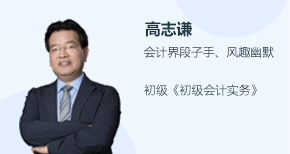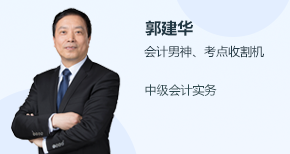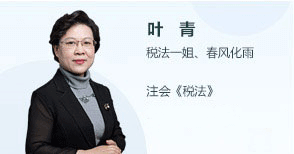2011年上外高翻MTI研究生统考 《汉语百科知识》 考题完整版百科知识
(一)选择题
1.能表演“掌上舞”是古代哪位美女? (几个选项是:貂蝉,西施,赵飞燕,杨玉环)
2.《史记》中“世家”是给什么人做的传?(帝王,王侯,将士,还有一个忘了。)
3.“孔雀东南飞”和___并称诗歌史上的“双壁:
4.“菊月”是指哪一个月?
5.“红肥绿瘦”是指什么季节?
6.“司空见惯”中“司空”是指? A唐朝的一位诗人 B唐朝的一位高僧 C一个官职
7.下面哪一个是武松所为?A倒拔垂杨柳 B汴京城卖刀 C醉打蒋门神
8.“名花解语”是指什么?
9.“程门立雪”是为了什么?A拜访 B请罪C道谢 D拜别
10.一知半解又爱炫耀的人我们通常用什么词语形容?A半截剑 B半段枪 C半面 D半瓶醋
11.“七月流火”形容的是? A炎炎夏日 B夏去秋来 C春去秋来 D秋去冬来
12.“汗流浃背”是为了什么?
13.京剧中,性格活泼的青年女性是? A青衣 B花旦 C彩旦
14. “杨柳”是? A一种植物 B两种植物 C与植物无关
15“成也萧何败萧何”指的是哪位历史人物?
(二)成语解释
精卫填海 来龙去脉 初出茅庐 韬光养晦 斯芬克之谜
MTI之2011中文百科-keys(杭州小蚩尤尝鲜版)
1.汉宫飞燕 赵飞燕身材轻盈,有人认为是古代芭蕾的雏形。
2.世家指的是各地的诸侯王
3.北朝民歌 木兰诗
4.菊花开的月份 9月
5.注意 这里不是声声慢的怎敌他晚来风急,绿叶已经盛开,花苞还没开,是春季。
6.此典故和刘禹锡有关,如果知道孔子以前担任过司寇,就能推断司空也是官职了。
7.花和尚鲁智深,青面兽杨志,天伤行者武松。
8.唐玄宗对杨贵妃的褒奖之词。美人通情达理。
9.、“凤凰二程”中的弟弟程颐在睡觉,门口有学生拜访想求学,直到大雪一尺多高。
10.半瓶醋=半瓶水
11.并不是说很热的意思,流火是流失了火热,秋天要来了。
12.文帝问到周勃刑法和税收事宜,由于平时工作敷衍,吓得够呛。
13.青衣南方叫正旦,服装朴素。彩旦是丑角的老太婆扮相。
14.南宋之前还没有对杨树有过记载,所以只是柳树而已。
15.刘邦手下有张良,萧何,韩信等杰出人才。
精卫填海 出自山海经,神帝之女溺死东海,幻化成鸟无力将东海一次性解决,便往复从西山叼来树枝石头,现形容坚持不懈。
来龙去脉:原指山体的走向,现为事物的发展过程。
初出茅庐:刘备听徐庶之建议,屈尊隆中三请诸葛亮。现指崭露头角。
韬光养晦:曹操煮酒论英雄,刘备故意装熊,掩饰锋芒。
斯芬克斯之谜语:白天四条腿,中午两条退,晚上三条腿。童年的儿歌,呵呵。答不出的直接吃掉,斯芬克斯是希腊神话中著名的妖怪,为狮身人面像的雏形,后谜语被某位英雄所破解,最后是因为羞愧自杀的还是被那位英雄所杀的还在争论之中。
二、应用文写作
材料内容就是某中日交流中心的秘书(日本人)在虹桥机场中青旅上海分社想改机票上的姓名(旅社弄错了),却受到工作人员的冷遇甚至冷眼相向。
要以中青旅上海分社总经理室的名义写一封道歉信。
三.大作文
材料:国考今天人数攀升,相比了2003年涨了十几倍。以此为材料写一篇议论文。800字。.
总分150(选择题是15分,成语解释35分啦。一共才50分。应用文40分,作文60分)
英语翻译基础(rachellin/eddyrainy):
题型,中译英英译中的词语,;中译英,英译中语篇一个是奥巴马的感恩节演讲选译,一个
是世博会。题量依旧很少。共四题,分两类,词语和语篇的翻译
Cancun conference 2010, Bogor Goals, 3R economy, Reforestation, UN security council,
千年发展计划,雷曼兄弟,国家一二五计划,上海合作组织,美联储,
1.Cancun Conference 2010
2.G20
3.Confucius
4.Gaza Strip
5.3R economy
6.Bogor Goals
7.the UN Security
8.quantitative easing
9. WTO
10.Reforestation
汉译英
1.循环经济
2.雷曼兄弟
3.天人合一
4.《国富论》
5.千禧年发展计划
6.货币战争
7.上海合作组织
8.国家十二五计划
9.朝核危机
10.
其他的暂时记不得了 以后想到了再传
语篇翻译,一篇英译中好像是奥巴马的每周演讲,好像就是圣诞后那周的电台演讲,将的是美国人民就业问题的。中译英将的是上海世博会的,举世瞩目的上海世博会已经落下帷幕,创下了很多世博会记录等等。
(温家宝演讲)
举世瞩目的上海世博会即将落下帷幕。本届世博会以“城市,让生活更美好”为主题,充分展示了丰富多彩的当代文明成就,汇集了人类探索城市发展的共同智慧,创造了多项世博会的新纪录,谱写了世界博览史的辉煌篇章。
上海世博会是一次成功的盛会,世博会云集了包括190个国家、56个国际组织在内的246个官方参展者,超出以往历届世博会。从5月1日到今天,世博会参观者达到7000多万人次,创下参观人数的新纪录。人们从世界各地来到美丽的黄浦江畔,走进世博园,顶着烈日,冒着风雨排着长队耐心等候,只为一睹世博会的风采。本届世博会还第一次开辟了网上世博,为世界各地更多的民众参与世博会开启了一扇新的大门。上海世博会以最广泛的参与度,实现了世界人民的大团结。
翻译硕士英语(rachellin/eddyrainy):
题型,无选项,无首字母完型,关于人类学的;超长阅读一篇,十分长非常长,4个回答问
题吧;写作一篇,关于一句人生哲言的。
一篇cloze一篇阅读还有一篇作文
cloze的那篇文章题目是Into Africa -- human ancestors from Asia
文章不长 有15个空,但没有任何选项供选择,文章大概讲的是:人们一直认为非洲是人类祖先的发源地,但是近期考古学家发现的化石研究发现人类的组先很可能是从亚洲而来。具体的填空不是很难,如果看懂文章的话。无首字母,15空,2分一个,讲得大概是人类祖先并非起源于非洲,而是可能从亚洲迁移而来的.
Evolution
Into Africa – the human ancestors from Asia
The human family tree may not have taken root in Africa after all, claimscientists, after finding that its ancestors may have travelled from Asia.
By Richard Alleyne, Science Correspondent 7:00PM BST 27 Oct 2010
While it is widelyaccepted that man evolved in Africa, in fact its immediate predecessors mayhave 1colonised thecontinent after developing elsewhere, the study says.
The claims are madeafter a team 2unearthedthe fossils of anthropoids – the primate group that includes humans, apes andmonkeys – in Libya's Dur At-Talah.
Paleontologistsfound that 3amongstthe 39 million year old fossils there were three distinct families ofanthropoid primates, all of whom lived in the 4area at approximately the same time.
Few or anyanthropoids are known to have existed in Africa during this 5period, known as theEocene epoch.
This could eithersuggest a huge gap in Africa's fossil record – 6unlikely, say the scientists, given the amount ofarchaeological work undertaken in the area –7 or that the species "colonised" Africafrom another continent at this time.
As the evolutioninto three species would have 8taken extreme lengths of time, combined with the lack of fossilrecords in Africa, the team concludes that Asia was the most likely 9origin.
Writing in thejournal Nature, the experts said they believed migration from Asia to be themost 10plausibletheory.
Christopher Beard,of the Carnegie Museum of Natural History in Pittsburgh, said: "11If our ideas are correct,this early colonisation of Africa by anthropoids was a truly 12pivotal event — one ofthe key points in our evolutionary history.
"At the time,Africa was an island continent; when these 13anthropoids appeared, there was nothing on thatisland that could compete with them.
"It led to aperiod of flourishing evolutionary divergence amongst anthropoids, and one ofthose lineages 14resultedin humans.
"If our earlyanthropoid ancestors had not succeeded in migrating from Asia to Africa, wesimply 15wouldn'texist."
He added:"This extraordinary new fossil site in Libya shows us that in the middleEocene, 39 million years ago, there was a surprising diversity of anthropoidsliving in Africa, whereas few if any anthropoids are known from Africa beforethis time.
"This suddenappearance of such diversity suggests that these anthropoids probably colonisedAfrica from somewhere else.
"Withoutearlier fossil evidence in Africa, we're currently looking to Asia as the placewhere these animals first evolved."
阅读。。选自nytimes,就几千字一篇,讲之前在Wall Street 工作的Mr. Murray患了brain cancer后,写了本书,有五个decisions要readers遵循,然后就是回答问题:
There are no one-handed push-ups orheadstands on the
yoga
mat for Gordon Murray anymore.
No more playing bridge, either — he jokingly accuses his brainsurgeon of robbing him of the gray matter that contained all the biddingstrategy.
But when Mr. Murray, a former bond salesman for
GoldmanSachs
who rose to the managing director level at bothLehmanBrothers
and Credit Suisse First Boston, decided to cease alltreatment five months ago for his glioblastoma, a type of brain cancer, hisfirst impulse was not to mourn what he couldn’t do anymore or to buy an islandor to move to Paris. Instead, he hunkered down in his tiny home office here andchanneled whatever remaining energy he could muster into a slim paperback. It’scalled “The Investment Answer,” and he wrote it with his friend andfinancialadviser
Daniel Goldie to explain investing in a handful of simplesteps.
Why a book? And why this subject? Nine years ago, after retiringfrom 25 years of pushing
bonds
on pension andmutual fund
managerstrying to beat the market averages over long periods of time, Mr. Murray had anepiphany about the futility of his former customers’ pursuits.
He eventually went to work as a consultant for Dimensional FundAdvisors, a mutual fund company thatrailsagainst active money management. So whenhis death sentence arrived, Mr. Murray knew he had to work quickly and resolvedto get the word out to as many everyday investors as he could.
“This is one of the true benefits of having a brain tumor,” Mr.Murray said, laughing. “Everyone wants to hear what you have to say.”
He and Mr. Goldie have managed to beat the clock, finishing andprinting the book themselves while Mr. Murray is still alive. It is plentyuseful for anyone who isn’t already investing in a collection of index orsimilar funds and dutifully rebalancing every so often.
But the mere fact that Mr. Murray felt compelled to write it isitself a remarkable story of an almost willful ignorance of the futility ofactive money management — and how he finally stumbled upon a better way ofinvesting. Mr. Murray now stands as one the highest-ranking Wall Streetveterans to take back much of what he and his colleagues worked for duringtheir careers.
Mr. Murray grew up in Baltimore, about the farthest thing from acrusader that you could imagine. “I was the kid you didn’t want your daughterto date,” he said. “I stole baseball cards and cheated on Spanish tests andmade fun of the fat kid in the corner with glasses.”
He got a lot of second chances thanks to an affluent backgroundand basketball prowess. He eventually landed at Goldman Sachs, long before manypeople looked askance at anyone who worked there.
“Our word was our bond, and good ethics was good business,” hesaid of his Wall Street career. “That got replaced by liar
loans
and ‘I hope I’m gone by the time this thing blowsup.’ ”
After rising to managing director at two other
banks, Mr. Murray retired in 2001.
At the time, his personal portfolio was the standard Wall Streetbig-shot barbell, with a pile of
municipalbonds
at one end to provide safe tax-free income and
privateequity
and hedge fund
investments
at the other.
When some of those bonds came due,
he sought out Mr. Goldie, a former professional tennis player and 1989 Wimble don quarterfinalist, for advice on what to buy next. Right away, Mr. Goldie began teaching him about Dimensional’s funds.
The fact that Mr. Murray knew little up until that point aboutbasic
assetallocationamong stocks and bonds and otherinvestments or the failings of active portfolio management is shocking, untilyou consider the self-regard that his master-of-the-universe colleagues taughthim. “It’s American to think that if you’re smart or work hard, then you canbeat the markets,” he said.
But it didn’t take long for Mr. Murray to become a true believerin this different way of investing. “I learned more through Dan and Dimensionalin a year than I did in 25 years on Wall Street,” he said.
Soon Dimensional hired him as a consultant, helping financialadvisers who use its funds explain the company’s anti-Wall Street investmentphilosophy to its clients. “The most inspirational people who talk aboutalcoholism are people who have gone through A.A.,” said
David Booth,Dimensional’s founder and chairman. “It’s the people who have had theexperience and now see the light who are our biggest advocates.”
Playing that role was enough for Mr. Murray until he received hisdiagnosis in 2008. But not long after, in the wake of the financial collapse,
he testified before aopen briefing at the House of Representatives, wondering aloud how it was possible that prosecutors had not yet woncriminal convictions against anyone in charge at his old firms and theircompetitors.
In June of this year, a brain scan showed a new tumor, and Mr.Murray decided to stop all aggressive medical treatment. For several years, hehad thought about somehow codifying his newfound investment principles, and Mr.Goldie had a hunch that writing the book would be a life-affirming task for Mr.Murray.
“I had balance in my life, and there was no bucket list,” Mr.Murray said. “The first thing you do is think about your wife and kids, butRandi would have killed me having me around 24/7. I had to do something.” Thecouple have two grown children.
And so he has tried to use his condition as a way to get people topay attention. The book asks readers to make just five decisions.
First, will you go it alone? The twoauthors suggest hiring an adviser who earns fees only from you and not frommutual funds or
insurance
companies, which is how Mr. Goldie now runs his business.
Second,divide your money among stocks and bonds, big and small, and value and growth.The pair notes that a less volatile portfolio may earn more over time than onewith higher volatility and identical average returns. “If you don’t have bigdrops, the portfolio can compound at a greater rate,” Mr. Goldie said.
Then, further subdivide between foreign and domestic.Keep in mind that putting anything less than about half of your stock money inforeign securities is a bet in and of itself, given that American stocks’ shareof the overall global equities market keeps falling.
Fourth, decide whether you will be investing in active orpassively managed mutual funds. No one can predict the future with anyregularity, the pair note, so why would you think that active managers can beattheir respective indexes over time?
Finally, rebalance, by selling your winners and buyingmore of the losers. Most people can’t bring themselves to do this, even thoughit improves returns over the long run.
This is not new, nor is it rocket science. But Mr. Murrayspent 25 years on Wall Street without having any idea how to invest like agrown-up. So it’s no surprise that most of America still doesn’t either.
Mr. Murray is home for good now, wearing fuzzy slippersto combat nerve damage in his feet and receiving the regular ministrations ofhospice nurses.
He generally starts his mornings with his iPad,since he can no longer hold up a newspaper. After a quick scan, he fires off ane-mail to Mr. Goldie, pointing to the latest articles about people takingadvantage of unwitting investors.
The continuing parade of stories does not seem to depresshim, though. Instead, it inspires him further, bringing life to his days. “Tohave a purpose and a mission for me has been really special,” he said. “It probablyhas added days to my life.”
In a cruel twist, one of Mr. Murray’s closefriends, CharlesDavis, chief executiveof the private equity firm Stone Point Capital, lost his son Tucker to cancerearlier this year. In his last several months, Tucker was often on the phonewith Mr. Murray.
“Gordon has a peace about him, halfway between WallStreet establishment and a hippie,” Mr. Davis said. “It was clear that he andmy son could talk in a way that very few people can, since they were in apretty exclusive club that nobody really wants to join.”
Mr. Murray managed to outlive Tucker, but he does notexpect to see his 61st birthday in March. Still, he didn’t bother memorializinghimself with a photograph on his book cover or even mention his illness inside.“I’m sick of me,” he said.
But he plays along with the dying banker angle, willingto do just about anything to make sure that his message is not forgotten, evenif he fades from memory himself.
“Thisbook has increased the quality of his life,” Mr. Davis said. “And it’s givenhim the knowledge and understanding that if, in fact, the end is near, that theend is not the end.”
一篇阅读是介绍华尔街的一个成功投资家的,他在诊断出绝症后决定把自己的投资技巧写成书,供大家参考。文章后只给出了四个问答题,每小题10分,供四十分。记得最后一题是要解释文中的一句话,when the end is near, the end is not the end.
最后一部分是作文,就给出了一句话,Not all that counts in life can be counted, 根据这个话题写一篇400字以上的作文。














